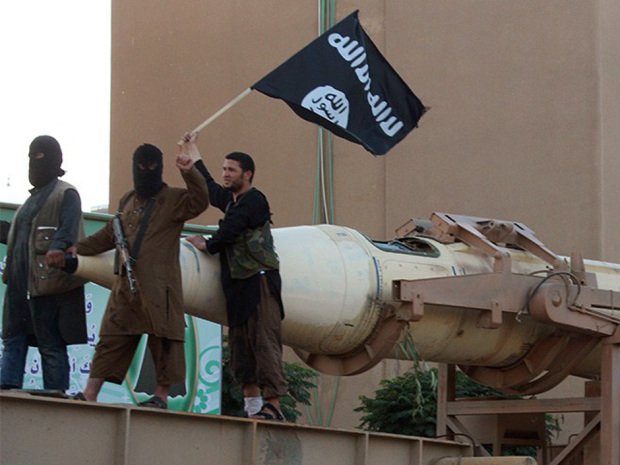The US and five Arab allies – Bahrain, Jordan, Qatar, Saudi Arabia and the United Arab Emirates – have launched the first strikes against Islamic State (ISIS) militants in Syria.
The Pentagon said warplanes, drones and Tomahawk missiles were used in the attacks, which targeted several areas including ISIS stronghold Raqqa.
Syria’s foreign ministry said its UN envoy was informed about the strikes against IS, which controls large swathes of Syria and Iraq.
The US has already launched about 190 air strikes in Iraq since August.
Pentagon spokesman Rear Adm John Kirby confirmed the operation, saying “US military and partner nation forces” had undertaken military action in Syria.
US Central Command (CENTCOM) said the Sunni Arab countries “participated in or supported” the strikes.
It said a total of 14 strikes destroyed or damaged IS training compounds, command and control facilities, vehicles and storage sites.
The US military will continue to conduct air strikes against IS targets in Iraq and Syria, it added.
Separately, CENTCOM said US forces also attacked a network of al-Qaeda veterans named Khorasan who had established a safe haven west of Aleppo and were plotting imminent attacks against the West.
The Syrian government has not formally consented to the air strikes on its territory. However, it says it was informed before they took place.

The strikes targeted Raqqa, an IS stronghold in eastern Syria the group captured in 2013, and the cities of Deir al-Zour, Hassakeh and Abu Kamal.
The Syrian Observatory for Human Rights, which has a network of activists on the ground, said more than 20 militants were killed in two strikes on ISIS positions in Raqqa.
It also said 30 al-Qaeda-linked fighters and 8 civilians, including three children, were killed in strikes west of Aleppo.
Jordan said its “air force jets destroyed a number of targets that belong to some terrorist groups that sought to commit terror acts inside Jordan”.
Analysts say it is significant that countries with a Sunni majority, like Jordan and Saudi Arabia, are among those supporting US efforts against IS.
ISIS members are jihadists who adhere to an extreme interpretation of Sunni Islam and consider themselves the only true believers.
The US and allies including the UK have ruled out co-operating against ISIS with Syria’s President Bashar al-Assad, whom they accuse of responsibility for huge numbers of civilian deaths during Syria’s civil war.
Syrian Foreign Minister Walid Muallem said last month that any US action would be “considered aggression” unless it was co-ordinated with Syria.
Hadi al-Bahra, president of the National Coalition, Syria’s main opposition alliance, welcomed the military action but said “strikes alone cannot defeat extremism for good.”
“The long-term solution is moderate, inclusive Syrian governance that prevents the resurgence of extremism,” he said in a statement.
Islamic State has taken control of large areas of Syria and Iraq, imposed a harsh brand of Islam, and declared a caliphate.
The group, which the CIA says could have as many as 31,000 fighters in Iraq and Syria, has executed captive soldiers, aid workers and journalists, and threatened the mass killing of Iraqi religious minorities.
The ISIS advance in northern Syria has created a refugee crisis in neighboring Turkey, with about 130,000 Kurdish refugees crossing the border at the weekend.
Most refugees are from Kobane, a Syrian town close to the Turkish border that is under siege by IS militants.
Before the latest influx, there were already more than one million Syrian refugees in Turkey.
[youtube NN7YRypKMvo 650]
